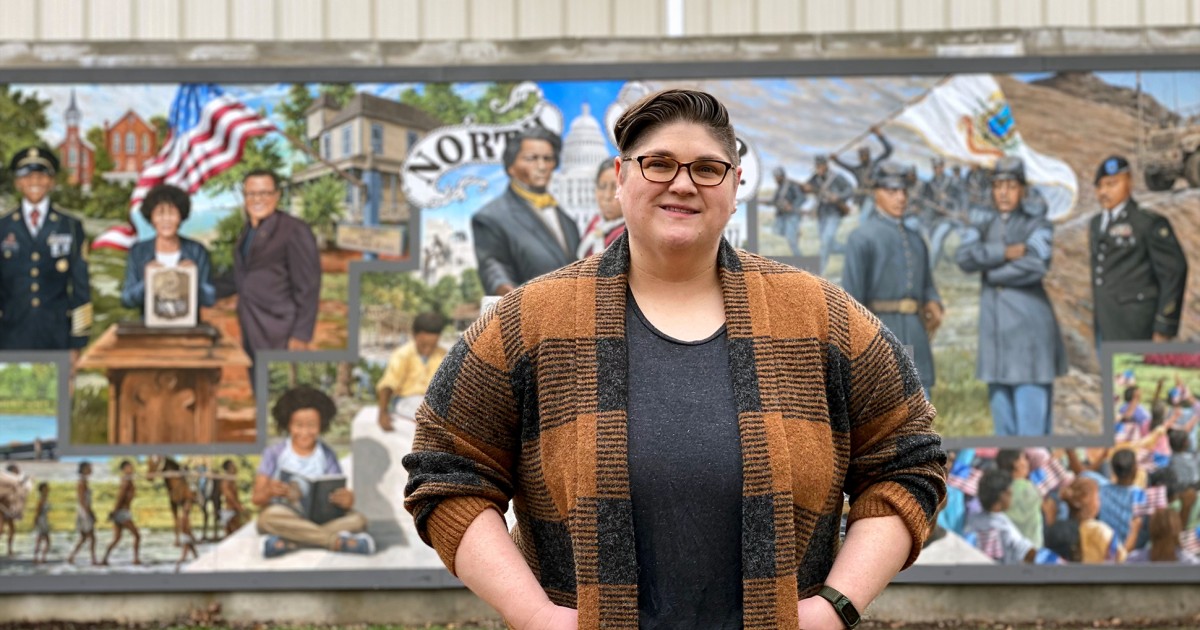Kate Caldwell recently joined the Center for Racial and Disability Justice (CRDJ), one of many centers at Northwestern University Pritzker School of Law, as the new director of research and policy. With a background in disability employment, entrepreneurship, and social entrepreneurship, Caldwell looks forward to translating research into policy and creating tools and resources for advocates and policymakers.
When the center opens in fall 2022, Dean Jamelia Morgan said she hopes to advance justice for people of color, individuals with disabilities and individuals where both identities intersect.
“There’s a saying among disability policy experts that all policy is disability policy, because that applies to everything: health care, transportation, housing, employment, foreign affairs,” Caldwell says. “Famous disability activist Alice Wong said that disabled people are prophets because we know what’s going to happen before it affects the general public, because it affects the disability community first, especially those who live in areas of overlapping disadvantage.”
Prior to joining CRDJ, Caldwell taught interdisciplinary disability studies methods at the undergraduate and graduate levels, particularly with regard to participatory and emancipatory methods, and has published extensively on bisexuality and disability theory. She continues to work with policymakers and legislators at the federal, state, and local levels, including members of Congress, the State Employment Disability Exchange (SEED), and the Mayor’s Office of Disability (MOPD).
Since joining the team, Caldwell has written a letter to the U.S. Census Bureau Director about recent proposed census changes that would result in an undercount of people with disabilities, and she wrote an article on Medium in response to a U.S. Department of Labor stakeholder session on subminimum wage wages. She looks forward to developing curriculum and debuting the Center’s Disability Policy Tracker soon.
“I’m excited to conduct research that captures the lived experiences and needs of marginalized communities and get the findings into the hands of decision-makers,” Caldwell said. “Sharing their experiences can have a positive impact on their lives and communities, which is part of the knowledge dissemination strategy I will implement at CRDJ. I also hope to use the research to create information, resources and tools that community members can use to advocate for their rights.”
In an interview with Northwestern Now, Caldwell spoke about her decades-long history of fighting for disability rights, the importance of intersectionality in policymaking, and what she hopes to accomplish in her first year in office.
How does this role contribute to the center’s broader mission?
This new role is important for the entire disability community. Disability studies, advocacy, and rights policy have long been criticized for not doing enough about the intersection of race and inequality. A lot of the work I’ve done has tried to include discussions about race because it reflects what’s going on in the real world. And therein lies the connection to policy. I’m so excited about this role because it allows me to do what I care about most – translate research into policy and create tools and materials that we can provide to advocates and policymakers. That way, when they’re making policy decisions that impact people’s lives, they have information in front of them to help inform those decisions.
Why is it so important that diverse voices are heard when policy is developed?
We want to provide a platform for those who are directly affected by these policies and laws to have a say in the process.
Educational disparities exist, many of which are influenced by multiple systems of oppression that impact educational opportunities for people with disabilities in general, and people of color in particular. It is important to us to be part of creating change by building a talent pipeline that can collaborate with students and fellows and provide a platform for professional development beyond the confines of the center.
How has your previous work prepared you for this role?
A lot of my background is in disability employment, entrepreneurship, and social entrepreneurship. When you look at the literature on disability entrepreneurship, most of it focuses on specific demographics. Much of the research that has been done has been through state vocational rehabilitation, and only 14% of those services offer entrepreneurial opportunities to those they serve. Additionally, the opportunities are unevenly distributed. Research shows that women and people of color with disabilities are often not considered “good” investments for entrepreneurship and self-employment, and are not served or are denied services because they believe they will not be successful. My work is about cleaning up the system.
Why is intersectionality important in policy work?
There are what are called “policy silos” in policy, where different agencies and departments don’t talk to each other. For example, education policy may not actually be aligned with employment policy, which may not be aligned with other policies. There are efforts in government to break down these silos and align them. But aligning these policies won’t work without taking into account the systemic changes that need to be addressed first – ableism, racism, sexism, LGBTQ status. Because to create and implement effective policies across the board, we need to understand these intersecting axes of oppression.
What do you want to accomplish in your first year?
We’re solidifying the program for the center. I love architecture, so I’m excited about this. I’m excited about getting more grassroots engagement. This is an area the center is focused on making progress on. I’m focused on getting people to understand that we have to have a seat at the table and be part of the discussion and talk about race and disability and all the things that come with that: gender, sexual orientation, immigration status. It’s long past time for us to confront these issues in our society, especially when it comes to research and policy. Making a big impact is really the goal.

